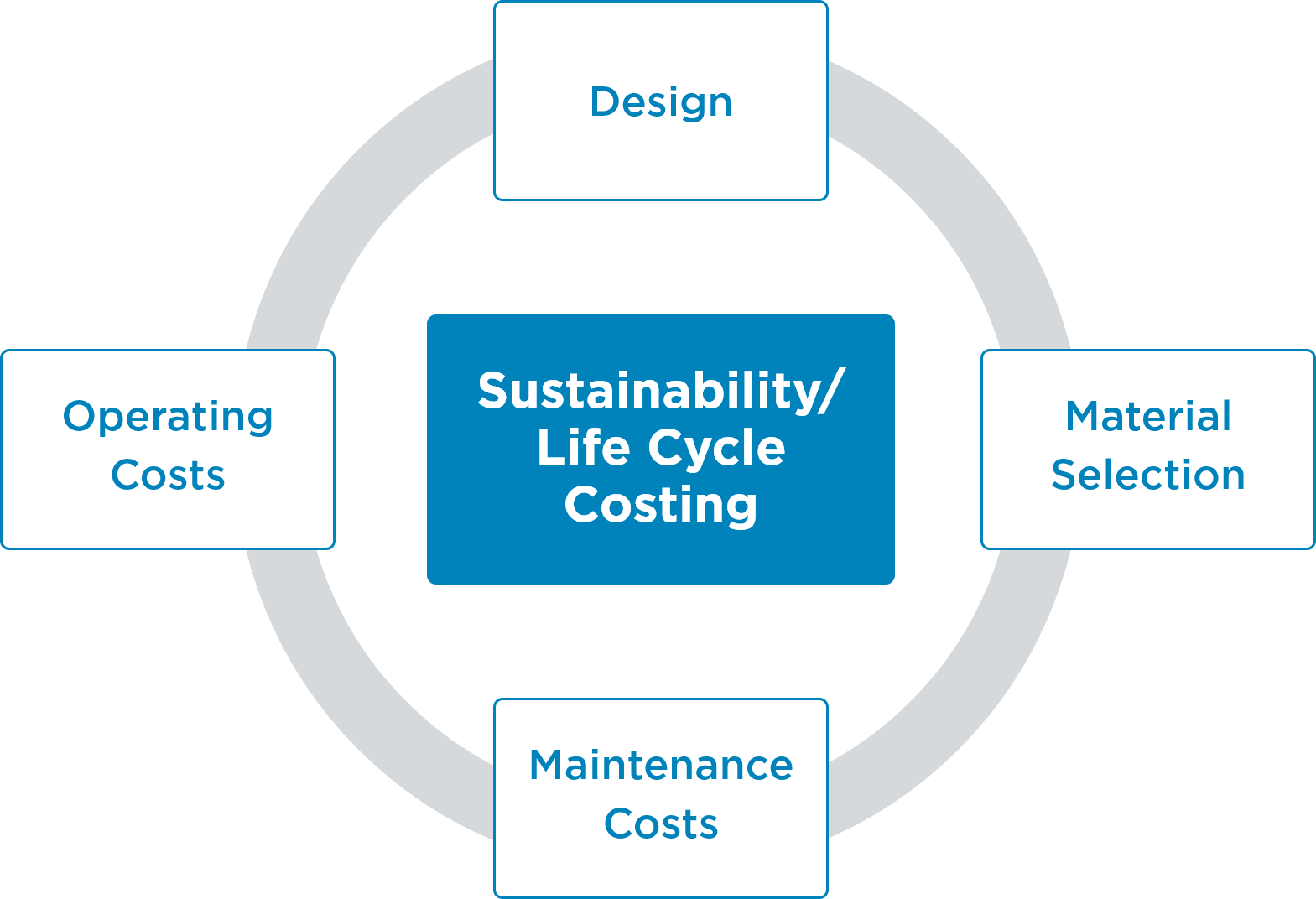At Scollard Doyle, we believe in giving back to the communities where we are active.
We integrate CSR values into the work of our company through our culture of respect for our people, our community, and our environment. In Ireland, we are long-standing supporters of the Peter McVerry Trust, a national housing and homeless charity committed to reducing homelessness and poverty caused by social disadvantage.
Internationally we are a member of the Creative Alliance Group, which is dedicated to exploring better design solutions for our planet. We align with their mission to create and design greater solutions for our client’s needs, and to enhance our own capabilities and reach, through respect, cooperation, transparency, and an uncompromising passion for excellence.
Sustainability
Sustainability is one of the most talked about objectives in construction and in the wider economy. The appreciation and understanding in this area has developed greatly over the last number of years. Good design will naturally offer sustainable solutions throughout a project.
Sustainable construction, considered by many to be socially, environmentally, and economically supportive in the long run by reducing its overall ecological footprint, while also being innovatively responsive to the ever-increasing demand for buildings, infrastructure, and the built environment.
In view of its environmental impact, sustainable construction involves the design and management of built structures, whether at the scale of buildings, infrastructure, or urban impact; the performance of materials across all scales and throughout their whole use-cycles; the use of renewable energy resources as well as their attendant technologies in building, operation, and maintenance to reduce global greenhouse gas emissions.
In view of its economic impact, sustainable construction involves the transition from a linear to a circular economy of renewable energy generation, material and waste recycling, water harvesting and preservation, transferable technologies, and the adaptability of structures to changes in use; innovative financing models premised on an economy of means that yields more with less; and the reinvestment of such returns for a collective benefit.
In view of its social impact, sustainable construction involves adherence to the highest ethical standards in business and industry practices throughout all project phases; the promotion of socially-viable living and working environments, including occupational health and safety standards for all users; and the understanding and consideration of the built environment and its impact on society as a whole.
Read More
Scollard Doyle have gained significant experience and indeed targeted projects and clients with a sustainable and green agenda. We have extensive experience working on some of the industry leading sustainable projects.
Our teams experience on working on projects with LEED, BREEAM, WELL and NZEB accreditations allows us to be a leading project and client team member, allowing our influence and experience to benefit projects from the outset.
In addition, Scollard Doyle as members of both the SCSI and RICS – we have signed up the Sustainability Declaration.
Climate change is one of the greatest threats of our time and has far reaching implications for the real estate industry, and all our futures. With the built environment contributing approximately 40% of the energy related carbon dioxide (CO2) emissions in the World, the thought of tackling this challenge can seem daunting. This framework serves as a first step towards tackling this challenge within our own practices and homes.
As Chartered Surveyors, we are aware of how our business activities impact upon the environment, and we are committed to ensuring that these activities have the least possible detrimental effect on the environment. As members, we commit to following sustainable business practices in our day-to-day operations and encouraging and supporting our clients and colleagues to instil these practices in their lives also.

LEED (Leadership in Energy and Environmental Design)
Globally, LEED is one of the most respected and used green building certification benchmarks. LEED accreditation can be achieved no matter what stage a building is at during its life cycle. A LEED Certification confirms that a building has been designed, built, and will be maintained using best practices for green building. Based on a points system, various factors are taken into consideration to determine whether the building is:
Platinum (80+ points). Gold (60–79 points). Silver (50-59 points). Certified (40-49 points)
The benefits of LEED Certification will ensure that the building will operate and be maintained at a lower cost level throughout the buildings life-cycle. This feeds into greater resale value, improved air quality, and contributes to the overall wellbeing of occupants in the building.
NZEB (Near Zero Energy Building)
The definition for Nearly Zero Energy Buildings (NZEB) in the Energy Performance in Buildings Directive (EPBD) is “a very high energy performance…The nearly zero or very low amount of energy required should be covered to a very significant extent by energy from renewable sources, including energy from renewable sources, produced on-site or nearby”.
Scollard Doyle understands the requirements of NZEB and work with design teams to ensure that the requirements of NZEB are met and included within the initial budgets for client sign off. We give appropriate cost advice so that the client can understand the targets attainable for their budget under these accreditations.
Scollard Doyle Projects
AIB HQ, 10 Molesworth Street | Dublin 2 | LEED – Platinum | BER A3 | Well
Dublin Landings, North Wall Quay | D1 | LEED – Platinum
Central Bank of Ireland | Dublin 1 | LEED – Gold | BER A2 | BREEAM Outstanding accreditation
Avolon HQ, Ballsbridge | Dublin 4 | LEED – Gold | BER A3
Bank of Ireland, Baggot Plaza | Dublin 4 | LEED – Gold | BER B1
Horgan’s Quay | Cork | LEED – Gold
Irish Stock Exchange (Euronext) | Dublin 2 | LEED – Gold | BER A3
One South County | Dublin 18 | LEED – Gold | BER B1 | WiredScore Platinum
Royal College of Surgeons Ireland | D2 | LEED – Gold | BER B1
Two South County | Dublin 18 | LEED – Gold | BER B1
Zendesk EMEA HQ | Dublin 2 | LEED – Gold | BER A3
Dublin Airport Central Phase 2 | LEED – Platinum, NZEB | BER A3
Fernwood Green and Maplewood Heights | Dublin 24 | NZEB | BER A3
Carman’s Hall | BREEAM Excellent
Cost Guide
Keep up to date with current construction costs by using our interactive Cost Guide.


